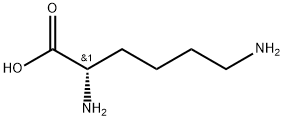
 CONTACT
CONTACT
- Linkman:Linda Yao
- Tel: +8618231198596
- Email:linda.yao@dcpharma.cn
- Linkman:CHARLES.WANG
- Department:Overseas
- Tel: 0086 0311-85537378 0086 0311-85539701
ε-Polylysine Hydrochloride Quality Supplier,Cosmetic Preservative
TIME:2024-11-27
ε-Polylysine Hydrochloride is a natural preservative extracted from a controlled fermentation broth of Streptomyces albulus, containing 25–35 L-lysine residues. This compound exhibits broad-spectrum antimicrobial properties, effectively inhibiting Gram-positive and Gram-negative bacteria, yeasts, and molds. Its advantages include high thermal stability, excellent water solubility, wide pH applicability, strong synergistic effects, and high safety, making it highly valuable for use as a preservative in cosmetics.
Applications of ε-polylysine hydrochloride in Cosmetic Preservation
1. Inhibition of Microbial Growth
ε-Polylysine Hydrochloride effectively inhibits the growth of common bacteria (e.g., Escherichia coli, Staphylococcus aureus, Pseudomonas aeruginosa) and fungi (e.g., Candida albicans, Aspergillus brasiliensis) found in cosmetics, thereby extending the shelf life of products.
2. Enhancing Cosmetic Safety
As a natural preservative, ε-polylysine hydrochloride offers greater safety compared to traditional chemical preservatives. It does not irritate or cause allergic reactions on the skin, making it suitable for all skin types.
3. Maintaining Product Quality
Adding ε-polylysine hydrochloride prevents microbial contamination during production and storage, preserving the original quality and efficacy of cosmetics.
4. Synergistic Effects with Other Ingredients
ε-Polylysine Hydrochloride can work synergistically with other cosmetic ingredients, such as moisturizers and antioxidants, to enhance the overall performance of cosmetic products.
While ε-polylysine hydrochloride has significant advantages in cosmetic preservation, its use is subject to certain limitations. According to regulations set by national health authorities, the concentration of ε-Polylysine in cosmetics must be controlled within specified limits to ensure safety and efficacy. Additionally, different types of cosmetics may require varying amounts of ε-polylysine hydrochloride, so its application must be tailored to specific formulations.
As consumer demands for cosmetic safety and quality continue to rise, the use of natural preservatives in cosmetics is expanding rapidly. ε-Polylysine Hydrochloride, with its broad-spectrum antimicrobial properties, thermal stability, and strong water solubility, has a promising future in the cosmetic market. With advancements in technology and reductions in production costs, its application in cosmetic preservation is expected to grow even further.
ε-Polylysine Hydrochloride demonstrates remarkable value in cosmetic preservation. Its excellent performance and safety profile make it one of the top choices in the field of cosmetic preservation, ensuring product quality and meeting consumer expectations for safe and effective cosmetics.
- Tel:+8618231198596
- Whatsapp:18231198596
- Chat With Skype







